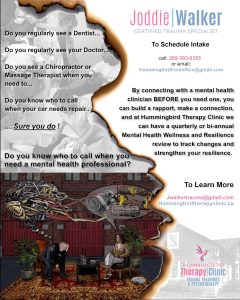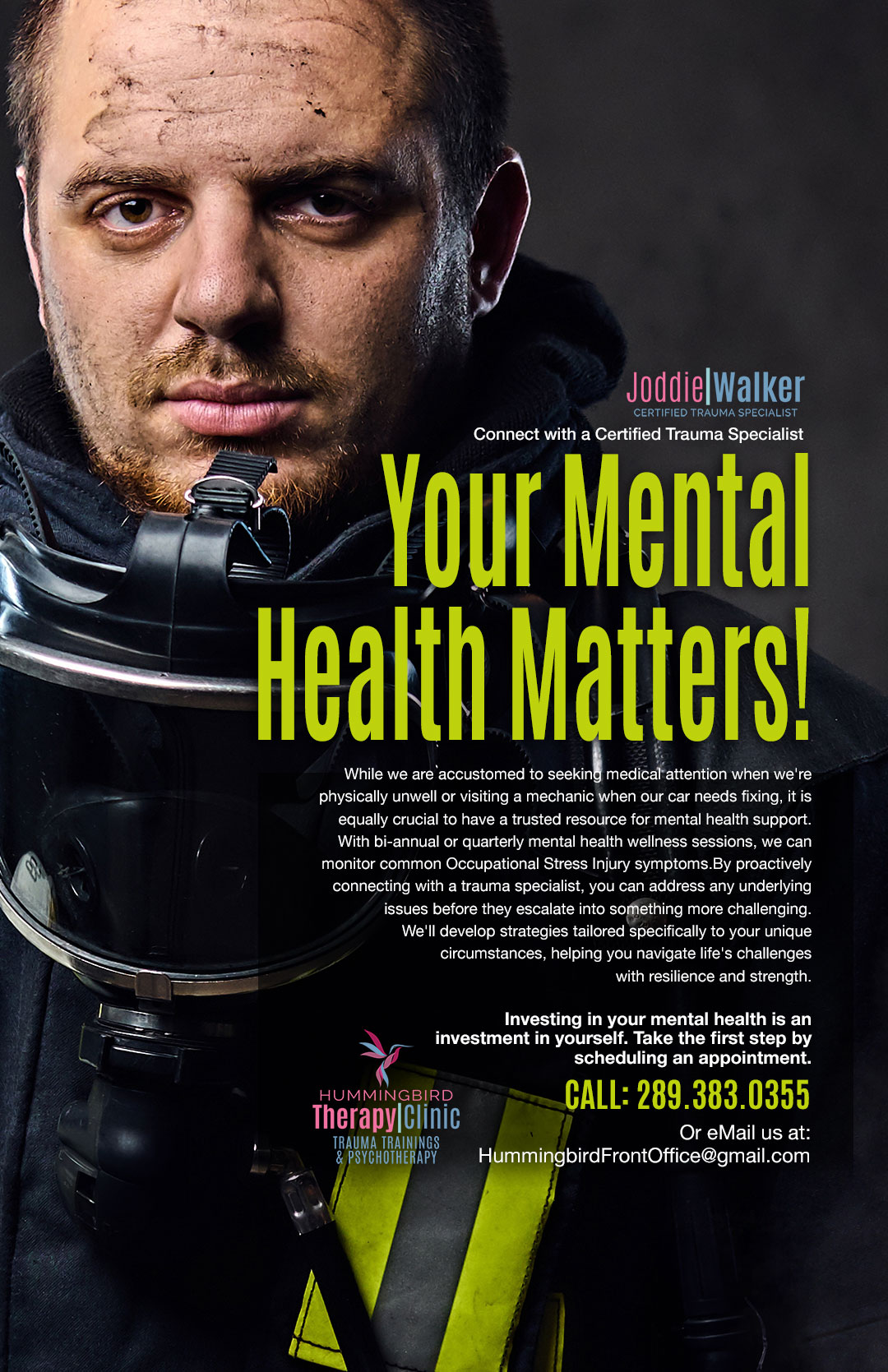Mental Health Check-ins for First Responders
 First Responder and Front-Line Professionals face stressful situations in their role. First Responders can become psychologically wounded or obtain an occupational stress injury. This injury follows you home and impacts the important relationships in your life.
First Responder and Front-Line Professionals face stressful situations in their role. First Responders can become psychologically wounded or obtain an occupational stress injury. This injury follows you home and impacts the important relationships in your life.
Proactive wellness programs promote solid mental health, enabling first responders to perform at their best at work, at home, and in the community.
At Hummingbird Therapy Clinic, we offer regular, confidential mental health check-ins. Come see us, before you need us. Seeking mental health check-ins allows the first responder to establish a rapport with a therapist and, creates a baseline of awareness for building on one’s resilience factors.
Wellness check-in takes one hour and reviews concerns and abilities to cope with job stressors, and screen for common occupational stress injuries, while exploring healthy ways to deal with challenges and set goals.
Wellness checks are not fitness-for-duty evaluations or used to screen for mental health disorders. They are completely confidential and do not trigger a report. Wellness check-ins are conducted off-site from the workplace and promote a more comfortable, safe environment. Wellness check-ins can be scheduled monthly, quarterly, or bi-annually.
First Responder Therapy and Treatment
First responder therapy can help you with the occupational stress injury and trauma exposure that you experience on the job. In therapy, sessions will implement evidenced-based practices to support your healing. Treatment plans are tailored to the unique person that you are and introduce healing activities and skills. Through the understanding of first responder culture and the trauma exposure from the job, we offer a safe and judgment-free experiences to guide you to adopt healthy behaviors and open room in one’s life for positive emotions and experiences.
Our team has many specialities that are common to first responder’s occupational stress:
- Trauma and PTSD (including ability to work under WSIB Claims)
- Addictions: Drug abuse and addiction, Alcohol abuse and addiction, Sexual addiction, Pornography addiction and Gambling addiction.
- Retirement Planning: Struggling with a loss of work identity, traumatic memories, and next chapter of life, emotional and physical struggles that can include: suicide thoughts, addiction, cancer, chronic illness, PTSD, or divorce.
- Couples Therapy
- Children of First Responders: stress management, anxiety, depression and other mental health issues for children and youth of first responders.

Joddie Walker describes common themes as well as unique impacts for first responders, such as moral injury and sanctuary trauma. She explains the importance of creating a safe space to unpack the stigma around needing help and the key step of broadening the story to include adverse childhood experiences.
A Note from Joddie, Clinical Director
My mission is to build and support good mental health with expanding feelings of joy, for first responders of every kind. I am a staunch advocate for first responder mental health and a proud Board of Director for Badge of Life, Canada.

